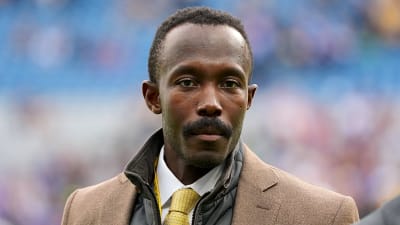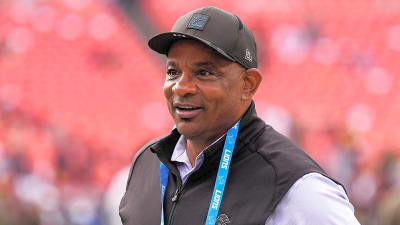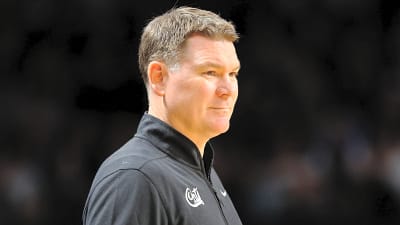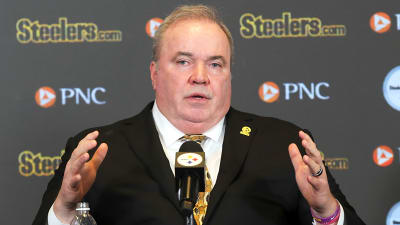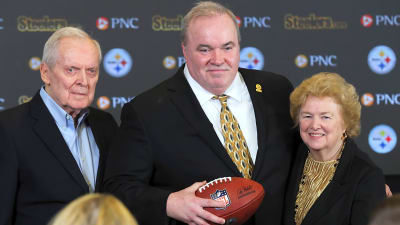MARTINSVILLE, Va. — Short-track madness. Playoff desperation. Championship dreams hanging by a thread. NASCAR Cup Series fans have circled Sunday, October 26th, on their calendars for good reason: Martinsville Speedway is about to deliver a brutal, bumper-to-bumper, wall-banging spectacle that will determine who joins Denny Hamlin and Chase Briscoe of Joe Gibbs Racing in the Championship 4 at Phoenix. Two slots remain, one for a race winner (if they’re in the playoffs), and one on points. And if you think “points” at Martinsville means logic or fairness, you’ve clearly never sat in the stands while the cars traded paint at 120 mph.
This is short-track racing at its finest—or its most chaotic, depending on your view. Ryan Blaney has won the last two Martinsville races, with Christopher Bell before him, and Chase Elliott famously took the win in 2020 to advance in the playoffs. But don’t forget 2021, when Alex Bowman, a non-playoff driver, nabbed victory in an outlier that reminded everyone that Martinsville is a demolition derby disguised as a racetrack. The point is simple: contact is inevitable, chaos is guaranteed, and anything can happen. That’s the beauty of the half-mile concrete cathedral.
Yet as much as fans love the on-track madness, the real drama often comes from above the track. NASCAR leadership—Jim France, the man whose family name is synonymous with the sport, and Elton Sawyer, SVP of Competition—is never far from the conversation. Sawyer, once a racer with a reputation for grit and gumption, has traded in his “good ol’ boy” racing persona for the corporate suit. Now he’s a bureaucrat, a gatekeeper, a rules enforcer with the subtlety of a sledgehammer. Once feared on short tracks as a driver who would race anybody clean—or dirty, if necessary—Sawyer has now become the embodiment of NASCAR corporate control. No more glory laps for the fans. No more heroics without post-race arbitration. Just spreadsheets, rules memos, and an almost obsessive need to micromanage chaos.
Consider last year’s Martinsville finale. Christopher Bell and William Byron battled for the final Championship 4 spot in Phoenix. Non-playoff drivers manipulated the last lap, Chevrolet and Toyota were in the mix, and the result took nearly an hour to finalize. Sawyer and his team pored over every angle, every tape, every inch of track footage before declaring Byron the victor over Bell. Bell rode the wall—like Ross Chastain’s iconic move in 2022—but Sawyer’s tower vetoed it.
NASCAR rules that William Byron will advance to the Championship 4 over Christopher Bell for a safety violation (wall ride).
— FOX: NASCAR (@NASCARONFOX) November 3, 2024
Here is what happened on the last lap at Martinsville: https://t.co/lH1WDUkRem pic.twitter.com/drhRKLvdbD
Flawed? Absolutely. Heroic? Totally. Lame? You bet. And let’s not forget the lawsuit NASCAR is now fighting against Denny Hamlin and 23XI Racing—a legal cloud hanging over the sport while Sawyer continues to micromanage every short-track finish.
Sunday, the plea is simple: let the drivers race. Let Jim France’s office enjoy the spectacle without overcomplicating things, and let Sawyer remember that racing is meant to be messy. Martinsville isn’t a corporate boardroom—it’s a quarter-mile battlefield where steel, strategy, and courage decide outcomes, not memos and post-race committees. NASCAR wants to get back in fans’ good graces, to remind everyone why they loved the sport in the first place. And honestly? Staying out of the Martinsville playoff finale would be a great start. Let chaos reign. Let bumpers talk. Let adrenaline, courage, and a little luck decide who advances to Phoenix.
ROAD TRIPPING TO NASHVILLE
— College GameDay (@CollegeGameDay) October 19, 2025
See you soon for @MizzouFootball vs. @VandyFootballpic.twitter.com/7AvYSfOInh
This track is tailor-made for playoff desperation. It’s small, unforgiving, and brutally fast. Every driver knows that one mistake, one misjudged bump, one lapped car can change the entire postseason. And that’s exactly why Martinsville is perfect for the Round of 8. It’s rough, it’s raw, and it’s what racing should be—painful, thrilling, and utterly unpredictable. Sawyer, for all his corporate polish, should step back and let the race be the race. His previous life as a driver was about guts, not memos. It’s time to trust that those lessons still matter on the asphalt, even if he rarely found victory lane himself.
Blaney, Bell, Elliott, and everyone else in the Round of 8 will be throwing elbows, sliding into walls, and racing like their lives—or their seasons—depend on it. Let them. Let the bumps, spins, and flukes unfold naturally. That’s short-track racing. That’s Martinsville. That’s what fans pay for. NASCAR, under Jim France and yes, Sawyer, has a rare chance this weekend to remind the world that stock car racing thrives on unpredictability, on courage, on competition—not endless post-race arbitration.
If Sawyer and NASCAR leadership can resist the urge to intervene, this Martinsville playoff race will be a masterpiece of chaos, strategy, and heart. Short-track racing at its purest. Demolition-derby theatrics. WWE-level drama on a quarter-mile strip of concrete. Let the best team and driver prevail. Stop the post-race rulebook gymnastics. Just let it happen. Fans will cheer. The drivers will battle. And NASCAR can finally show it remembers its roots.
Martinsville isn’t about spreadsheets, lawsuits, or micromanaging genius maneuvers. It’s about steel, speed, and the courage to put it all on the line. Jim France, Elton Sawyer—stay in your towers, sign the checks, run the offices, but leave the asphalt to the drivers, not your caution button. Let’s race. Let’s crash. Let’s cheer. And for the love of short-track racing, let the boys duke it out without turning victory into a committee decision. May the best driver, and the most fearless, win.
More must-reads:
- Snowstorm forces NASCAR to postpone Clash at Bowman Gray to Wednesday
- Series of earthquakes rock Bay Area ahead of Super Bowl LX
- The 'Super Bowl starting QBs' quiz
Breaking News
Trending News
Customize Your Newsletter
 +
+
Get the latest news and rumors, customized to your favorite sports and teams. Emailed daily. Always free!
